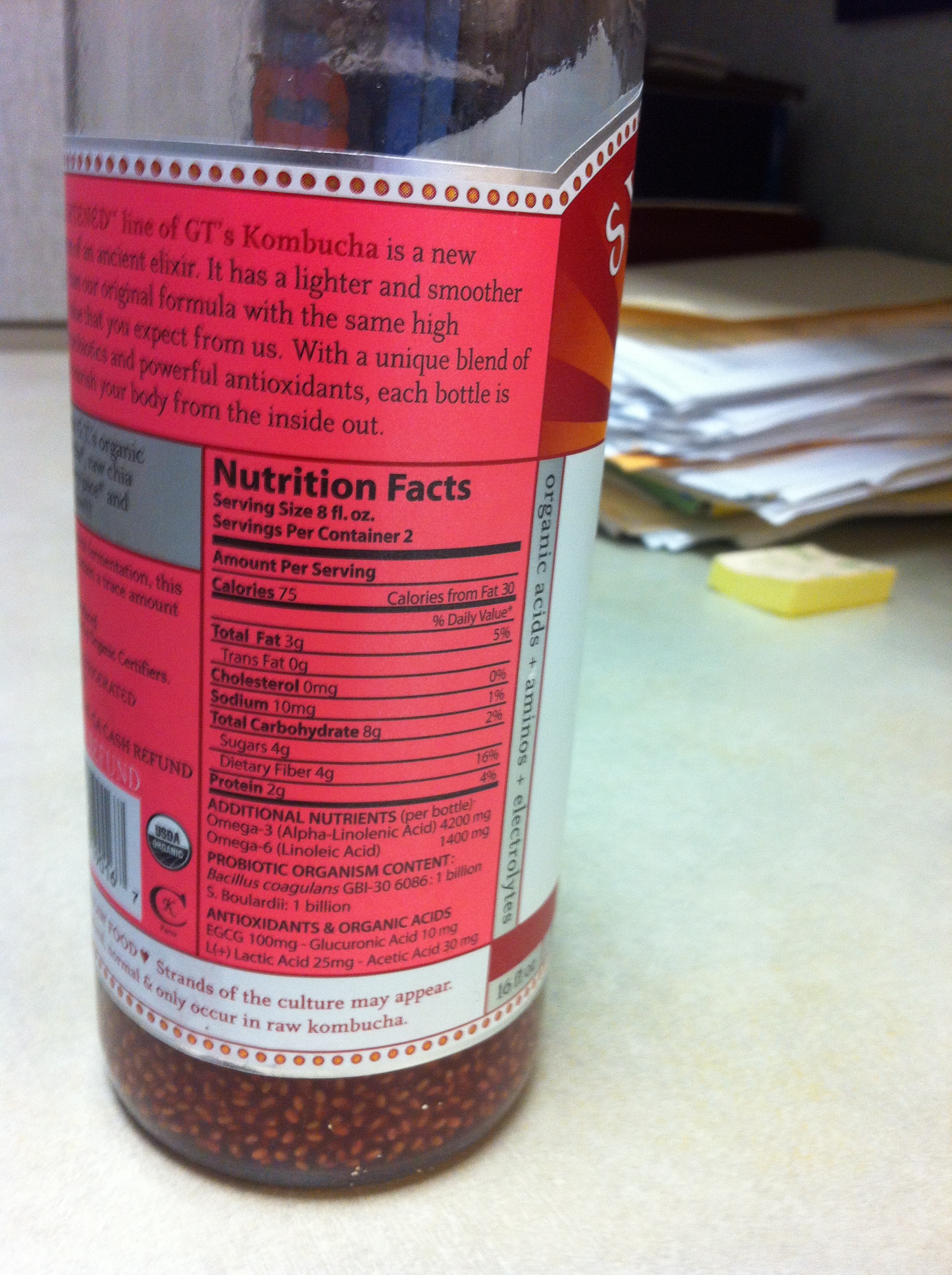In a recent suit filed in California, Millennium Products, Inc., the maker of GT’s Kombucha and Synergy drinks, was challenged on claims that its drinks contain “powerful antioxidants”, which plaintiffs claim is in violation of the Food, Drug and Cosmetics Act because the antioxidant statements it makes are misleading and unauthorized nutrient content claims as proscribed by the FDA.
Pursuant to federal regulations, a nutrient content claim is a claim on a food product that directly or by implication characterizes the level of a nutrient in the food (e.g., “low fat,” “high in oat bran,” or “contains 100 calories”). Only those claims that are specifically defined in the regulations may be used, all other claims are prohibited. Previously approved nutrient content claims characterize the level of a particular nutrient (e.g., ‘low sodium’), whereas a term such as ‘high in antioxidants’ ties a claim (i.e., ‘high’) to a class of nutrients that share a specific characteristic (i.e., they are antioxidants).
GT’s label use lists “EGCG 100mg” (a polyphenol found in tea with recognized antioxidant properties) in order to substantiate their antioxidant claim. However, for claims characterizing the level of antioxidant nutrients in a food, a reference daily intake (RDI) must be established for each of the nutrients that are the subject of the claim, but in this case there is no established RDI for EGCG. Moreover, since GT’s product is a type of tea, and the FDA considers tea a food with no nutritional significance, the plaintiffs claim the drinks do not contain “even a single antioxidant nutrient with an established RDI.”
It is important to note that Millennium Products, Inc. isn’t the only company to face legal action in recent years from consumers making false labeling claims. Recently, Twinings North America, Inc. was sued for allegedly deceiving consumers by mislabeling its teas as a “natural source of antioxidants”, however, in this case the judge dismissed the lawsuit stating that a “natural source of antioxidants” is not a nutrient content claim because it did not state or imply the level of antioxidants. However, in warning letter sent in 2012 the FDA noted that the statement “very powerful antioxidant” is an unauthorized nutrient content claim because “very powerful” characterize the level of antioxidants in the product. Other tea producers were also sent warning letters by the FDA over their green teas because they were improperly labeled with the term “antioxidant” (see Unilever, Inc. maker of Lipton Tea and Dr Pepper Snapple Group).
As lawsuits are increasingly targeting food and beverage makers challenging their labeling claims, it is more important than ever to make sure your labels are thoroughly reviewed prior to introducing the products into the marketplace. If your business is unsure whether a product label is in compliance with, or need assistance in adapting your label to meet, FDA regulations please contact our attorneys at Morsel Law.

